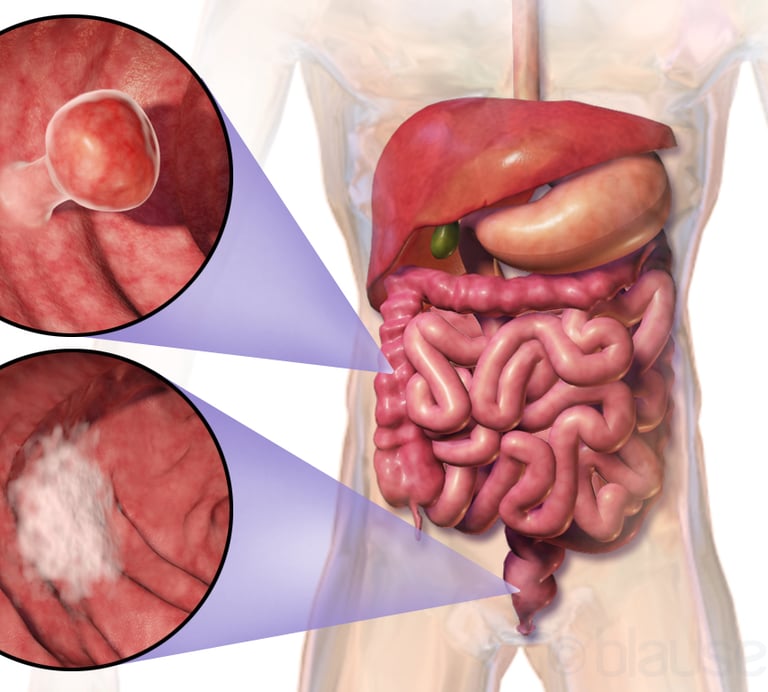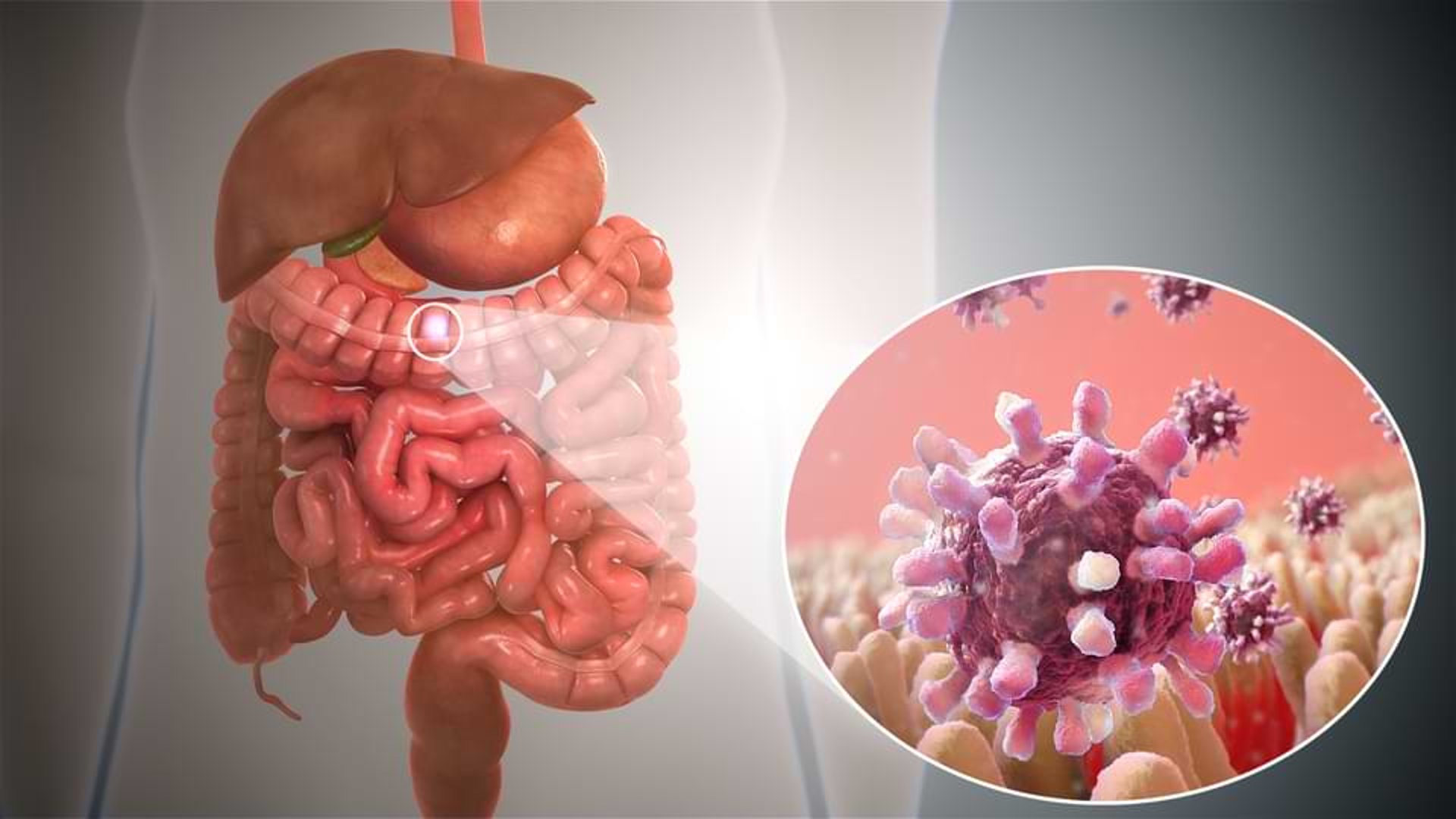Gastrointestinal Cancers (Stomach and Colorectal Cancer)

Gastrointestinal (GI) cancers develop in the digestive system, most commonly in the stomach or colon and rectum (colorectal cancer). These cancers may begin as abnormal cell growth in the lining of the digestive tract and can spread to other organs if not detected early.
Stomach cancer (gastric cancer) often develops slowly over many years, while colorectal cancer usually begins as small, noncancerous growths called polyps, which can turn malignant over time. Early diagnosis and timely treatment are crucial to improving survival rates and maintaining quality of life.
Signs and Symptoms


The symptoms of gastrointestinal cancers can vary depending on the location and stage of the disease. Common warning signs include:
Persistent abdominal pain or discomfort
Unexplained weight loss
Loss of appetite or early fullness after meals
Nausea, vomiting, or indigestion
Blood in stool or black, tarry stools
Changes in bowel habits (diarrhea, constipation, or narrowing of stool)
Fatigue and weakness
Anemia (low red blood cell count)

Diagnostic Procedures
Diagnosing GI cancers involves a series of tests to confirm the presence, type, and stage of cancer. Dr. Kanishka Sarkar ensures a comprehensive evaluation through:
Physical Examination & Medical History: Identifying risk factors and initial symptoms.
Endoscopy & Colonoscopy: Direct visualization of the stomach or colon with the ability to take biopsies.
Biopsy: Laboratory testing of tissue samples to confirm malignancy.
Imaging Tests (CT, MRI, PET Scans): Determine the extent of cancer spread.
Blood Tests & Tumor Markers: Assess overall health and detect cancer-related abnormalities.
Why Choose Dr. Kanishka Sarkar for Gastrointestinal Cancers?
Gold Medalist in MD: Proven academic and clinical excellence in oncology.
Personalized Cancer Care: Tailored treatment plans based on cancer type, stage, and patient condition.
Expertise in Gastrointestinal Oncology: Specialized experience in treating stomach and colorectal cancers.
Comprehensive Treatment Options: Chemotherapy, targeted therapy, immunotherapy, and radiation therapy following international standards.
Advanced Surgical Collaboration: Works closely with gastrointestinal and colorectal surgeons for complete cancer management.
Patient-Centered Approach: Transparent counseling, empathetic support, and guidance through every stage of treatment.
Multidisciplinary Team Care: Collaborative approach with gastroenterologists, surgeons, and radiologists for the best outcomes.
